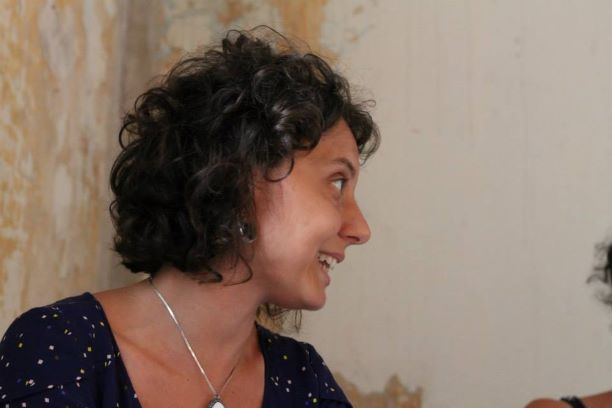Studying at the University of Verona
Here you can find information on the organisational aspects of the Programme, lecture timetables, learning activities and useful contact details for your time at the University, from enrolment to graduation.
Academic calendar
The academic calendar shows the deadlines and scheduled events that are relevant to students, teaching and technical-administrative staff of the University. Public holidays and University closures are also indicated. The academic year normally begins on 1 October each year and ends on 30 September of the following year.
Course calendar
The Academic Calendar sets out the degree programme lecture and exam timetables, as well as the relevant university closure dates..
| Period | From | To |
|---|---|---|
| LMSRPS - 2° ANNO 1° SEM. | Oct 3, 2019 | Feb 8, 2020 |
| LMSRPS - 1° ANNO 1° SEM. | Nov 14, 2019 | Mar 14, 2020 |
| LMSRPS - 2° ANNO 2° SEM. | Apr 16, 2020 | Jun 27, 2020 |
| LMSRPS - 1° ANNO 2° SEM. | Apr 16, 2020 | Jun 27, 2020 |
| Session | From | To |
|---|---|---|
| Sessione invernale Lm Srps | Mar 16, 2020 | Apr 9, 2020 |
| Sessione estiva Lm Srps | Jul 1, 2020 | Jul 31, 2020 |
| Sessione autunnale Lm Srps | Sep 1, 2020 | Sep 30, 2020 |
| Session | From | To |
|---|---|---|
| Prima sessione Lm Srps | Sep 15, 2020 | Dec 15, 2020 |
| Seconda sessione Lm Srps | Mar 1, 2021 | Apr 30, 2021 |
| Period | From | To |
|---|---|---|
| FESTIVITA' OGNISSANTI | Nov 1, 2019 | Nov 1, 2019 |
| FESTIVITA' IMMACOLATA CONCEZIONE | Dec 8, 2019 | Dec 8, 2019 |
| Vacanze di Natale | Dec 23, 2019 | Jan 6, 2020 |
| VACANZE DI PASQUA | Apr 10, 2020 | Apr 15, 2020 |
| FESTA DELLA LIBERAZIONE | Apr 25, 2020 | Apr 25, 2020 |
| FESTIVITA' DEL LAVORO | May 1, 2020 | May 1, 2020 |
| FESTIVITA' DEL SANTO PATRONO SAN ZENO | May 21, 2020 | May 21, 2020 |
| Festa della Repubblica | Jun 2, 2020 | Jun 2, 2020 |
| vacanze estive | Aug 10, 2020 | Aug 23, 2020 |
| Description | Period | From | To |
|---|---|---|---|
| Stage 2° anno Lm Srps | Stage 2° anno Lm Srps | Jun 15, 2020 | Sep 15, 2020 |
| Stage 1° anno Lm Srps | Stage 1° anno Lm Srps | Jul 1, 2020 | Sep 30, 2020 |
Exam calendar
Exam dates and rounds are managed by the relevant Medicine Teaching and Student Services Unit.
To view all the exam sessions available, please use the Exam dashboard on ESSE3.
If you forgot your login details or have problems logging in, please contact the relevant IT HelpDesk, or check the login details recovery web page.
Should you have any doubts or questions, please check the Enrollment FAQs
Academic staff
 davide.adamoli@univr.it
davide.adamoli@univr.it
 marialivia.alga@univr.it
marialivia.alga@univr.it
 cinzia.biondani@ospedaleuniverona.it
cinzia.biondani@ospedaleuniverona.it
Cunico Laura
 laura.cunico@univr.it
laura.cunico@univr.it
 tullio.ferrari@univr.it
tullio.ferrari@univr.it
 christian.geroin@univr.it
christian.geroin@univr.it
Makil Elhassan
 alessandro.manganotti@ospedaleuniverona.it
alessandro.manganotti@ospedaleuniverona.it
 loredana.pancheri@univr.it
loredana.pancheri@univr.it
 sara.rinaldi@univr.it
sara.rinaldi@univr.it
Study Plan
The Study Plan includes all modules, teaching and learning activities that each student will need to undertake during their time at the University.
Please select your Study Plan based on your enrollment year.
1° Year
| Modules | Credits | TAF | SSD |
|---|
2° Year activated in the A.Y. 2020/2021
| Modules | Credits | TAF | SSD |
|---|
| Modules | Credits | TAF | SSD |
|---|
| Modules | Credits | TAF | SSD |
|---|
Legend | Type of training activity (TTA)
TAF (Type of Educational Activity) All courses and activities are classified into different types of educational activities, indicated by a letter.
Health management (2019/2020)
The teaching is organized as follows:
Learning outcomes
The course aims to provide knowledge about the departmental organization of Health Services and the distinctive attributes of different welfare organization models; to understand the basics of Clinical Governance and organizational analysis and their main tools; to know how to determine the equipment needs of a rehabilitation service and their clinical documentation; and to identify the characteristics, purposes, functions, therapeutic and rehabilitative demands of DSMs - part of the Department of Mental Health. MANAGEMENT APPLIED TO SERVICES The course aims to understand the different aspects of the processes of Health Professions; to identify the role profile of the Rehabilitation Area Manager; to understand the basics of Clinical Governance and its main tools; to learn the fundamentals of organizational analysis and the theoretical application of complex adaptive systems; to determine the equipment needs for inpatient and outpatient services with variable volumes and activities; to know how to plan absences in a group of professionals; to know how to calculate volumes of activities in an outpatient setting; to understand risk management applied to rehabilitation services; to understand and apply the main tools of project and change management; to recognize and manage the main problems related to outpatient activities; and to understand the potential and critical issues of rehabilitation clinical documentation systems. MANAGEMENT METHODOLOGY The course aims to identify the characteristics, purposes, functions and decision-making levels of a Department; to recognize the strengths and weaknesses of Lean Healthcare (theories and principles of Lean Organization applied to healthcare); to define the components of the organizational assistance models; to read the reference organizational context; to recognize the management actions needed to define the workplace, the primary tools and address integration issues; to provide knowledge of the correct management of human resources (professional development and skills perspective) and to identify the features of a complex budget structure. ORGANIZATIONAL MODELS IN PSYCHIATRIC REHABILITATION The course aims to provide concrete and contextualized information on psychiatry and the organizational context after the Basaglia Law; to understand the current organizational choice of psychiatric services in a bio-psycho-social dimension. The course will also introduce essential elements to understand normative references on Mental Health; to define the characteristics, purposes, functions and decision-making levels of the Department of Mental Health; to understand the organizational components of the Department of Mental Health; to identify the characteristics, purposes, and functions of the structures belonging to the Department of Mental Health and to understand the therapeutic-rehabilitative provision of DSMs in the life cycle.
Bibliography
| Author | Title | Publishing house | Year | ISBN | Notes |
|---|---|---|---|---|---|
| Calamandrei C. | Manuale di management per le professioni sanitarie. (Edizione 4) | McGraw-Hill Education | 2015 | ||
| A. Pennini | Strumenti di management per i coordinatori delle professioni sanitarie | McGraw-Hill | 2013 |
Career prospects
Module/Programme news
News for students
There you will find information, resources and services useful during your time at the University (Student’s exam record, your study plan on ESSE3, Distance Learning courses, university email account, office forms, administrative procedures, etc.). You can log into MyUnivr with your GIA login details: only in this way will you be able to receive notification of all the notices from your teachers and your secretariat via email and soon also via the Univr app.
Gestione carriere
Internships
Stage
in definizione
Orario lezioni
Documents
| Title | Info File |
|---|---|
|
|
pdf, it, 260 KB, 26/01/24 |
|
|
pdf, it, 187 KB, 11/04/24 |
|
|
pdf, it, 203 KB, 12/04/24 |
Student login and resources
Attività seminariali/a scelta dello studente
La Commissione Didattica organizza l'offerta di attività didattiche opzionali, realizzabili con lezioni, seminari, corsi interattivi a piccoli gruppi, tirocini fra i quali lo studente esercita la propria personale opzione, fino al conseguimento di un numero complessivo di 6 CFU.
Le attività formative a scelta dello studente si concludono con un esame, che, in quanto tale, concorre al completamento delle certificazioni di profitto requisito per accedere all'esame finale.
Il materiale didattico relativo alle suddette attività didattiche saranno messe a disposizione nello spazio moodle riservato allo stage.
Appelli d'esame
Potranno chiedere di fare l’esame di profitto o di laurea a distanza solo le studentesse e gli studenti in isolamento in quanto positivi al SARS-CoV-2. La richiesta dovrà essere fatta inviando al docente il modulo allegato
Documents
| Title | Info File |
|---|---|
|
|
pdf, it, 260 KB, 26/01/24 |
|
|
pdf, it, 160 KB, 18/03/24 |
|
|
pdf, it, 135 KB, 18/03/24 |
|
|
pdf, it, 185 KB, 18/01/23 |
|
|
octet-stream, it, 1299 KB, 31/01/23 |



 045 8124930
045 8124930


















